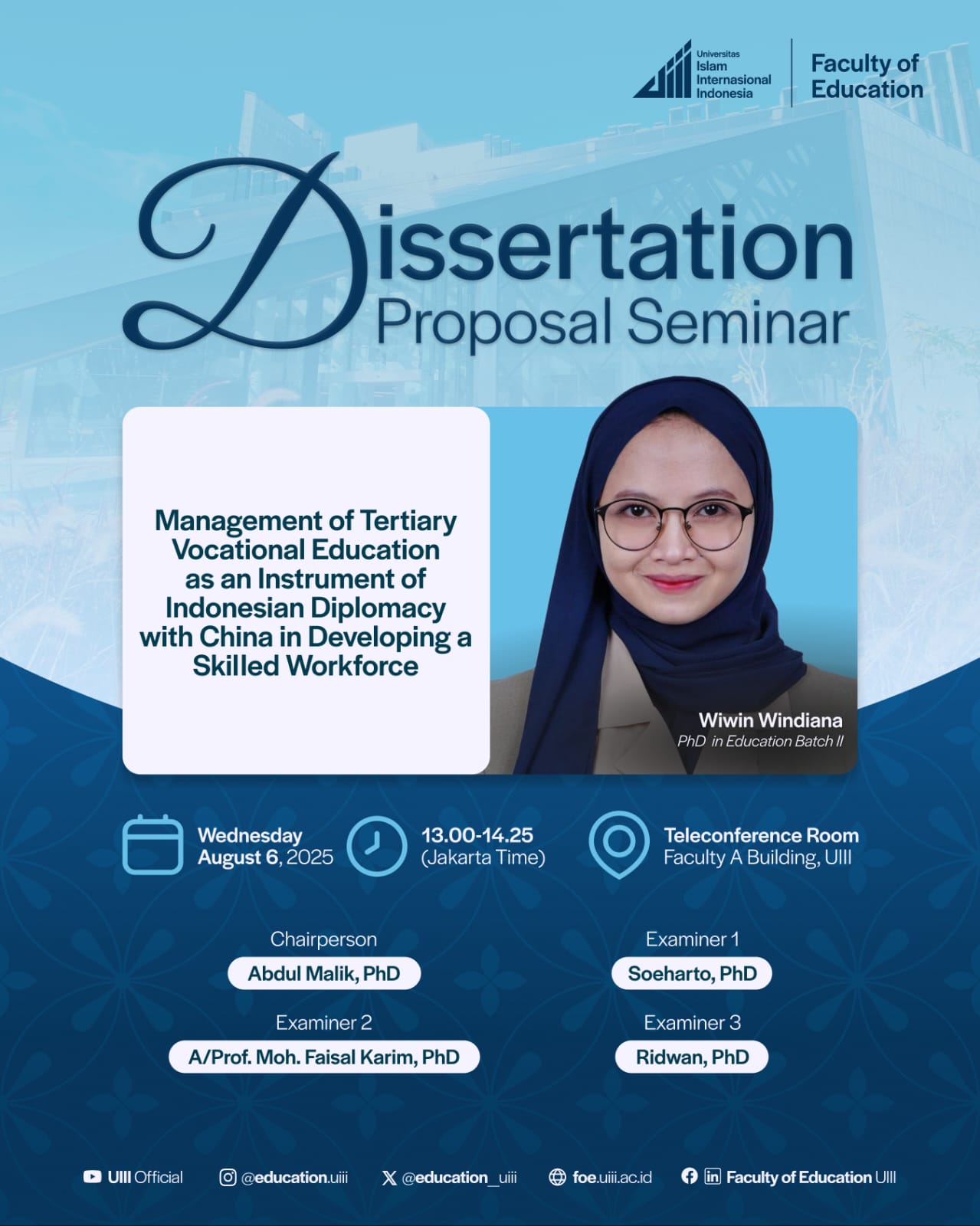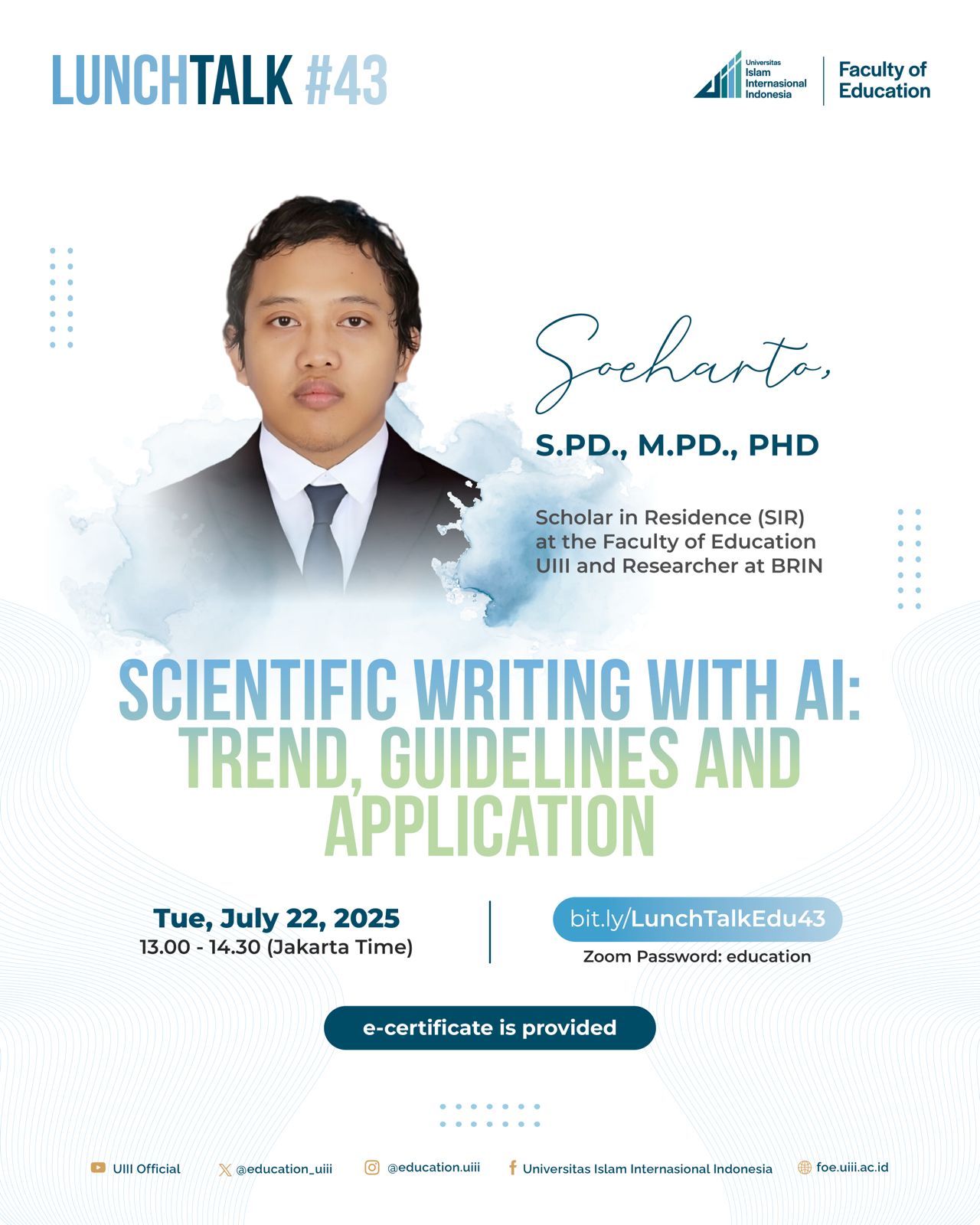Symposium: Culturally-Informed Educational Leadership in Asia

Culturally-Informed Educational Leadership in Asia
Educational leadership is shaped by cultural values, beliefs, and societal norms, yet much of the scholarship in this field remains grounded in Western paradigms. This symposium provides a critical lens on educational leadership from an Asian cultural perspective, exploring how leadership practices across different countries are influenced by their respective cultural and belief systems. Featuring case studies from three Asian countries, this symposium invites researchers, practitioners, and graduate students to engage in cross-cultural dialogue and rethink leadership through a cultural lens.
Recorded on YouTube
https://www.youtube.com/watch?v=OkfquP1RJBE
School Leadership Resilience During the COVID-19 Pandemic: Indonesian Experience

Mutohar, A., Sumintono, B., Julianto, V. (2025). School Leadership Resilience During the COVID-19 Pandemic: Indonesian Experience. In: Zainuddin, Z., Sumintono, B., Perera, C.J. (eds) Resilient and Sustainable Education Futures. Sustainable Development Goals Series. Springer, Singapore. https://doi.org/10.1007/978-981-96-4971-6_12
Islamic Leadership and School Resilience in Times of Crisis: Lessons from Indonesian Primary Schools Post-COVID-19 Pandemic

Hariri, H., Mukhlis, H., Sumintono, B., Supriyono (2025). Islamic Leadership and School Resilience in Times of Crisis: Lessons from Indonesian Primary Schools Post-COVID-19 Pandemic. In: Zainuddin, Z., Sumintono, B., Perera, C.J. (eds) Resilient and Sustainable Education Futures. Sustainable Development Goals Series. Springer, Singapore. https://doi.org/10.1007/978-981-96-4971-6_13
Navigating Teacher Agency: Implementing an Innovative Literacy Teaching Model in Indonesian Classrooms
 Durriyah, T.L., Dewayani, S., Parlindungan, F. (2025). Navigating Teacher Agency: Implementing an Innovative Literacy Teaching Model in Indonesian Classrooms. In: Zainuddin, Z., Sumintono, B., Perera, C.J. (eds) Resilient and Sustainable Education Futures. Sustainable Development Goals Series. Springer, Singapore. https://doi.org/10.1007/978-981-96-4971-6_17
Durriyah, T.L., Dewayani, S., Parlindungan, F. (2025). Navigating Teacher Agency: Implementing an Innovative Literacy Teaching Model in Indonesian Classrooms. In: Zainuddin, Z., Sumintono, B., Perera, C.J. (eds) Resilient and Sustainable Education Futures. Sustainable Development Goals Series. Springer, Singapore. https://doi.org/10.1007/978-981-96-4971-6_17
School Digitalization Strategies in Non-strategic Setting: Insights from Islamic Boarding Schools in Rural Indonesia
 Supriyono, Numan, M., Mumtaz, M.F. (2025). School Digitalization Strategies in Non-strategic Setting: Insights from Islamic Boarding Schools in Rural Indonesia. In: Zainuddin, Z., Sumintono, B., Perera, C.J. (eds) Resilient and Sustainable Education Futures. Sustainable Development Goals Series. Springer, Singapore. https://doi.org/10.1007/978-981-96-4971-6_11
Supriyono, Numan, M., Mumtaz, M.F. (2025). School Digitalization Strategies in Non-strategic Setting: Insights from Islamic Boarding Schools in Rural Indonesia. In: Zainuddin, Z., Sumintono, B., Perera, C.J. (eds) Resilient and Sustainable Education Futures. Sustainable Development Goals Series. Springer, Singapore. https://doi.org/10.1007/978-981-96-4971-6_11
Conclusion: Global Implications and Future Directions of Resilient Education Systems in the Post-pandemic Era

Zainuddin, Z., Sumintono, B., Perera, C.J. (2025). Conclusion: Global Implications and Future Directions of Resilient Education Systems in the Post-pandemic Era. In: Zainuddin, Z., Sumintono, B., Perera, C.J. (eds) Resilient and Sustainable Education Futures. Sustainable Development Goals Series. Springer, Singapore. https://doi.org/10.1007/978-981-96-4971-6_20
Reinventing Sustainable Learning in Malaysia and Indonesia: Lessons Learned from COVID-19

Zainuddin, Z., Perera, C.J., Sumintono, B. (2025). Reinventing Sustainable Learning in Malaysia and Indonesia: Lessons Learned from COVID-19. In: Zainuddin, Z., Sumintono, B., Perera, C.J. (eds) Resilient and Sustainable Education Futures. Sustainable Development Goals Series. Springer, Singapore. https://doi.org/10.1007/978-981-96-4971-6_2
Background: Resilient and Sustainable Education Futures

Perera, C.J., Zainuddin, Z., Sumintono, B. (2025). Background. In: Zainuddin, Z., Sumintono, B., Perera, C.J. (eds) Resilient and Sustainable Education Futures. Sustainable Development Goals Series. Springer, Singapore. https://doi.org/10.1007/978-981-96-4971-6_1
Lunch Talk #43: Scientific Writing with AI: Trend, Guidelines and Application
 You are invited to join the Lunch Talk #43 at the Faculty of Education, UIII
You are invited to join the Lunch Talk #43 at the Faculty of Education, UIII
Soeharto, S.Pd., M.Pd., PhD (Scholar In Residence Fellow at the Faculty of Education UIII and Researcher at BRIN) will share about: "Scientific Writing with AI: Trend, Guidelines and Application".
This talk aims to observe the trend for using AI in academia, extend your knowledge about how to use AI based on Springer and Elsevier Guideline, and utilize AI use in your research works, especially in publishing article in reputable journals.
Day/Date: Tuesday/July 22, 2025
Time: 13.00 - 14.30 (Jakarta time)
Place: Theater, Faculty A Building
Online participation:
https://bit.ly/LunchTalkEdu43
E-Certificate is provided
Thank you!
Recorded on YouTube
https://www.youtube.com/watch?v=D2TOl_ckVuU




